Submitted by WA Contents
NOA and Atelier4 design new Tirana tower with a stack of archetypal village house pieces
Albania Architecture News - Dec 02, 2024 - 15:47 4880 views
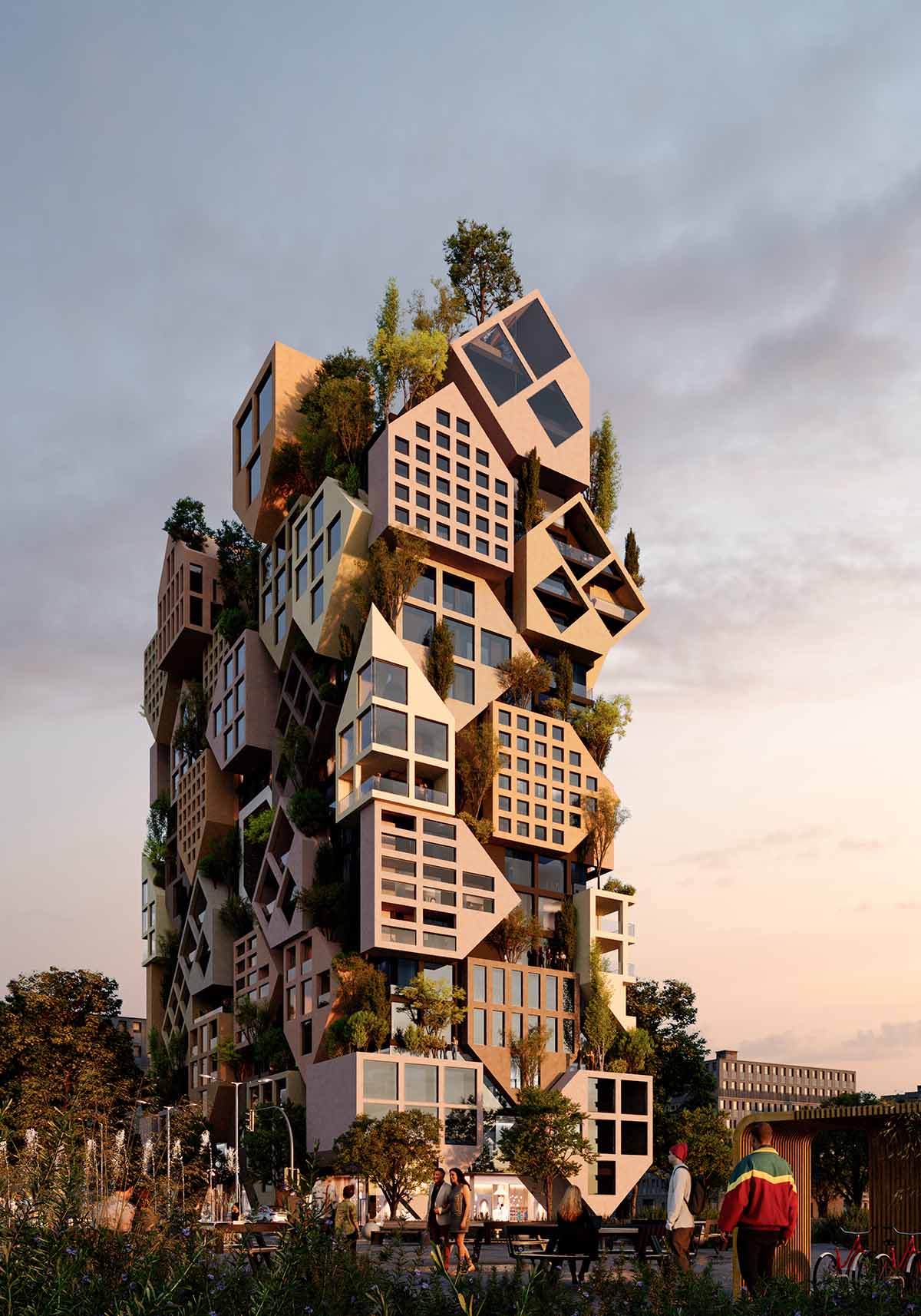
Italian architecture studios Network of Architecture (NOA) and Atelier4 have designed a new high-rise that incorporates the elements of an archetypal village house with a gabled roof on its façade.
Named Puzzle Tirana, the tower features a striking façade showcasing various sizes, colors, and shapes of traditional village houses. In a densely populated area, where ten-story buildings alternate with two-or three-story residences—a typical scenario in Tirana.
The mixed-use tower is situated on a rectangular 75 by 25 meters plot.
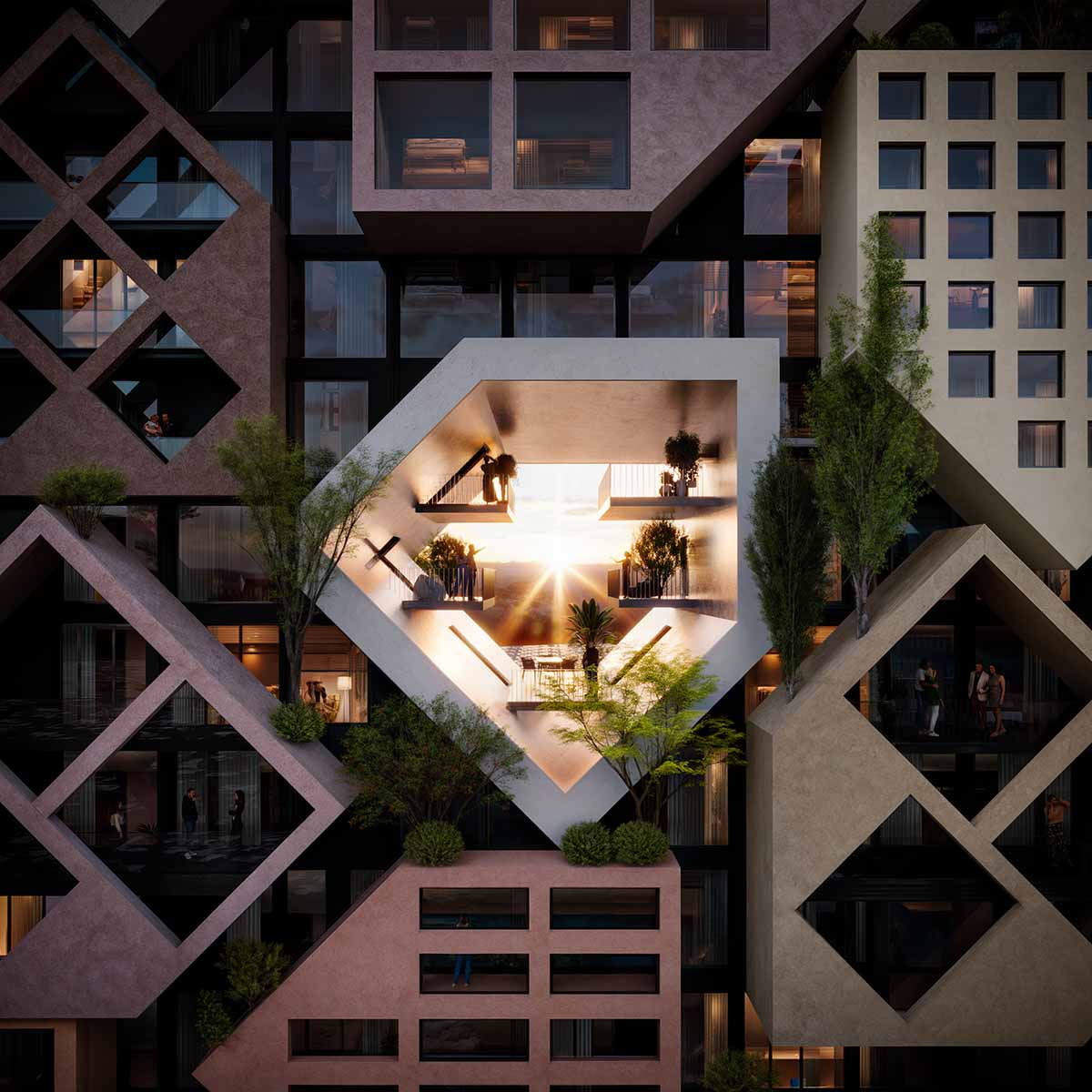
The existing structure will be replaced by a new mixed-use building that will house 160 apartments of varying sizes (between 70 and 130 square meters), apartments, penthouses, a hotel, and a sizable commercial space.
"In Tirana, a new tower designed by NOA reflects the rapid transformations of the Albanian capital," said NOA.
"The archetypal village house with a gabled roof is multiplied and stacked in a dizzying vertical composition, resembling a puzzle that awaits its final piece—capturing both the city’s past and its future yet to be written," the studio added.
As the studio explained, Tirana has undergone rapid urban change in the last century. The city's architecture has frequently been used as a political propaganda tool since it was named the capital in 1920. Urban growth accelerated after the communist regime collapsed in 1991, frequently without any planning.
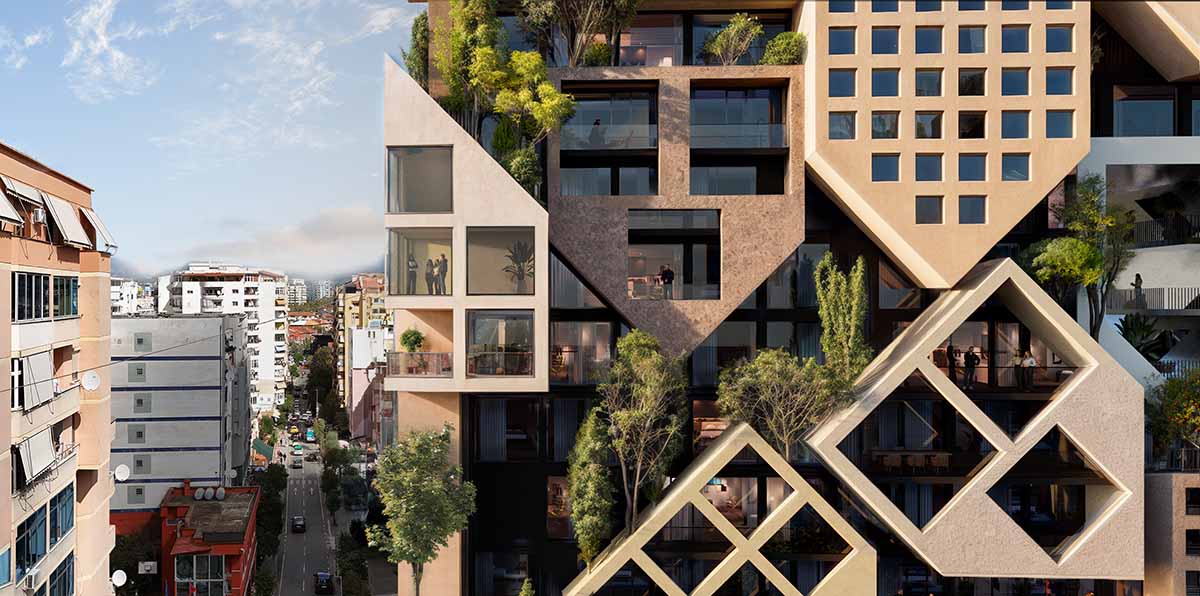
A wave of famous architects was drawn to Tirana and Albania when Edi Rama was elected mayor in 2000 and prime minister in 2013, ushering in a period of major urban renewal and international openness. In this regard, NOA was hired to design a new structure on Rruga Medar Shtylla, near the city lake in the southwest section of the city.
"Walking through Tirana, I experienced a city with a rich yet turbulent past, visible in the diverse architectural fragments scattered around the urban landscape. It seemed like a kind of puzzle where the old and new worlds coexist in a fascinating interplay of contrasts," said Lukas Rungger, architect and NOA founder.
The idea behind the concept was to symbolize the city's rapid growth by showing the shift from rural homes to urban apartments. The project forms a distinctive metropolitan village as it rises vertically.
"In our design, we aimed to portray the encounter/clash between rural and urban life, drawing on elements of both," said Lukas Rungger.
"We created an extremely rational and optimized core, capable of housing diverse types of spaces, while the facade is driven by extreme dynamism—an apparent chaos in which, however, every piece is in its place," Rungger added.
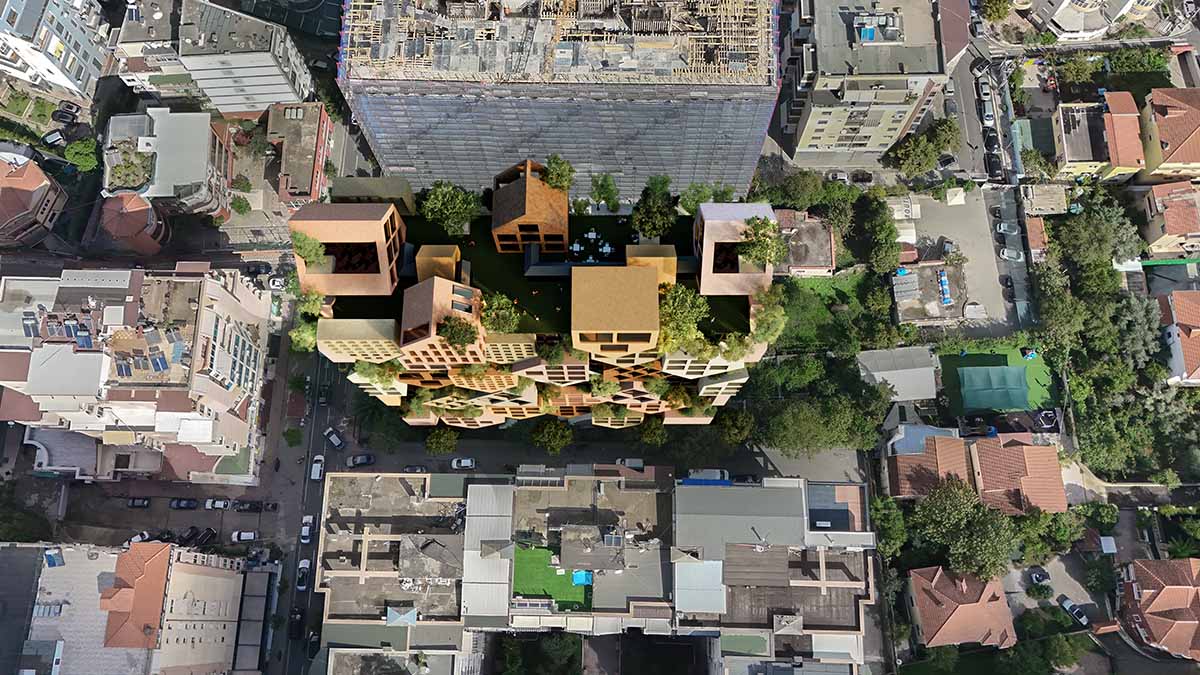
Constructing a puzzle, Tirana is designed like a tower, featuring four facades that project between 0.5 and 3 meters. These facades comprise a dynamic and varied composition of house-shaped modules with gabled roofs. These modules differ in form, roof orientation, number and size of openings, and color.
"The houses work as puzzle pieces," explained Lukas Rungger. "They fit into each other, rotating until they ‘click’ into the structure."
Each module in this vertical village represents additional space for residences and business spaces, making it more than just a formal feature. It's a multipurpose indoor-outdoor area that can accommodate a variety of uses, including loggias, swimming pools, saunas, barbecuing areas, open-air movie theaters, and hanging gardens.
The tower's harmonious interaction with the surrounding urban context is made possible by the equal architectural value of the building's four facades. The shopping center on Rruga Medar Shtylla has a triangular entrance.
"The facade elements extend into the building’s interior," added Andrea Dal Negro, architect on the project.
"The inner courtyard fronts, spanning the first two floors dedicated to commercial spaces, are also inverted houses that define the circulation areas," Dal Negro continued.
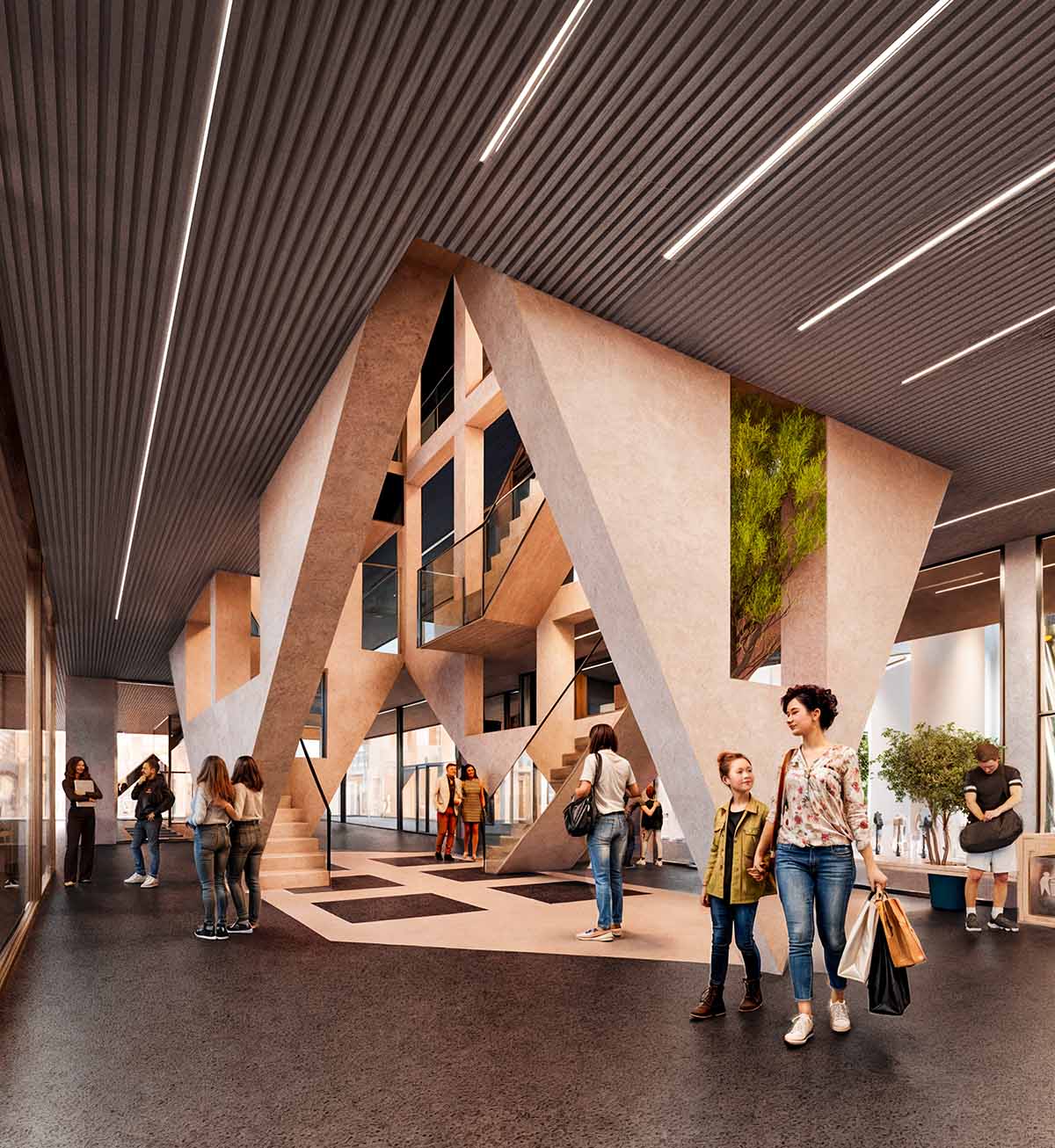
Grafting native plants and shrubs onto the modules' projecting sections enhances the facades even more. Sculptures complement this hanging garden on the first two floors, forming an artistic walkway along the facade.
"Between the 8th and 11th floors, a large void, shaped like a rotated house, cuts across the facade from side to side, adding an unexpected element—a volumetric void, as though it were the missing piece of the puzzle," concluded Andrea Dal Negro.
The functional distribution is vertical, with underground parking, a commercial area on the first two floors, a mix of hotels and apartments from the second to the sixth floors, and only apartments (158 units total) from the seventh to the sixteenth floors.
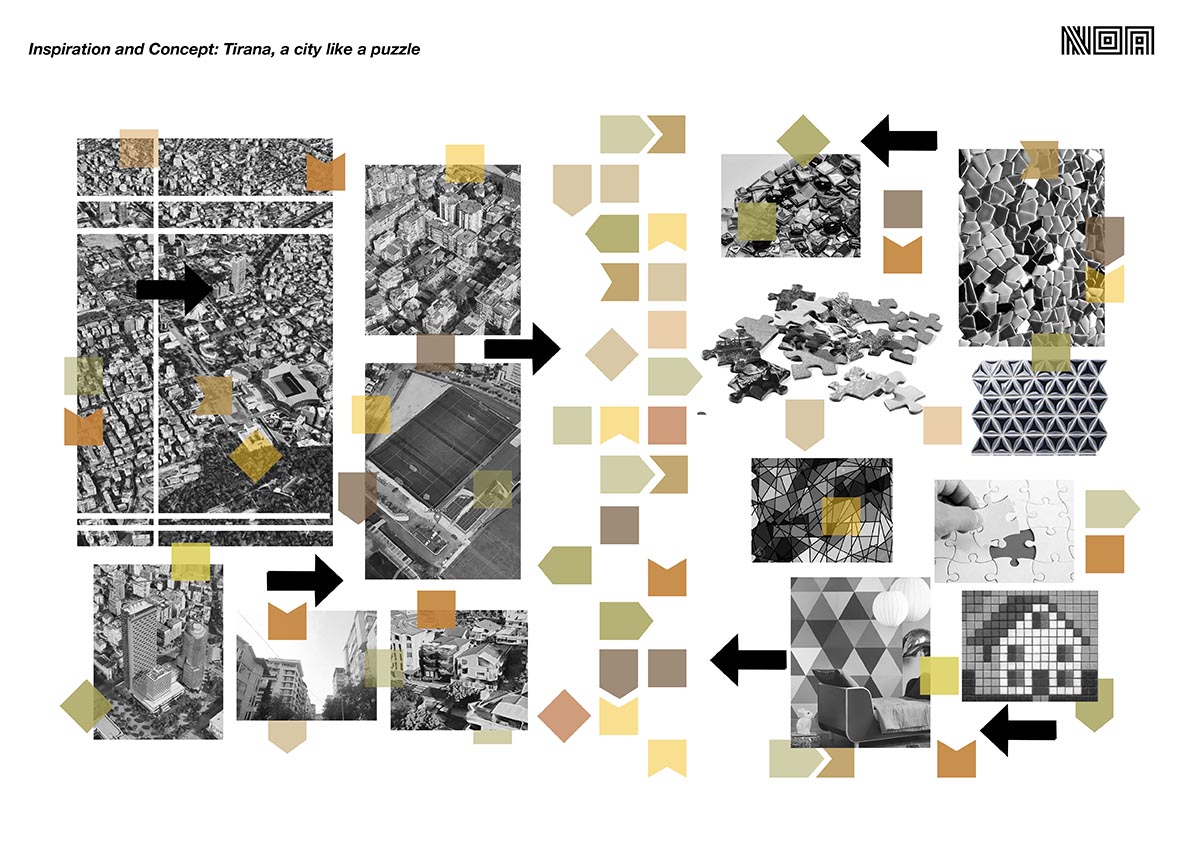
Concept
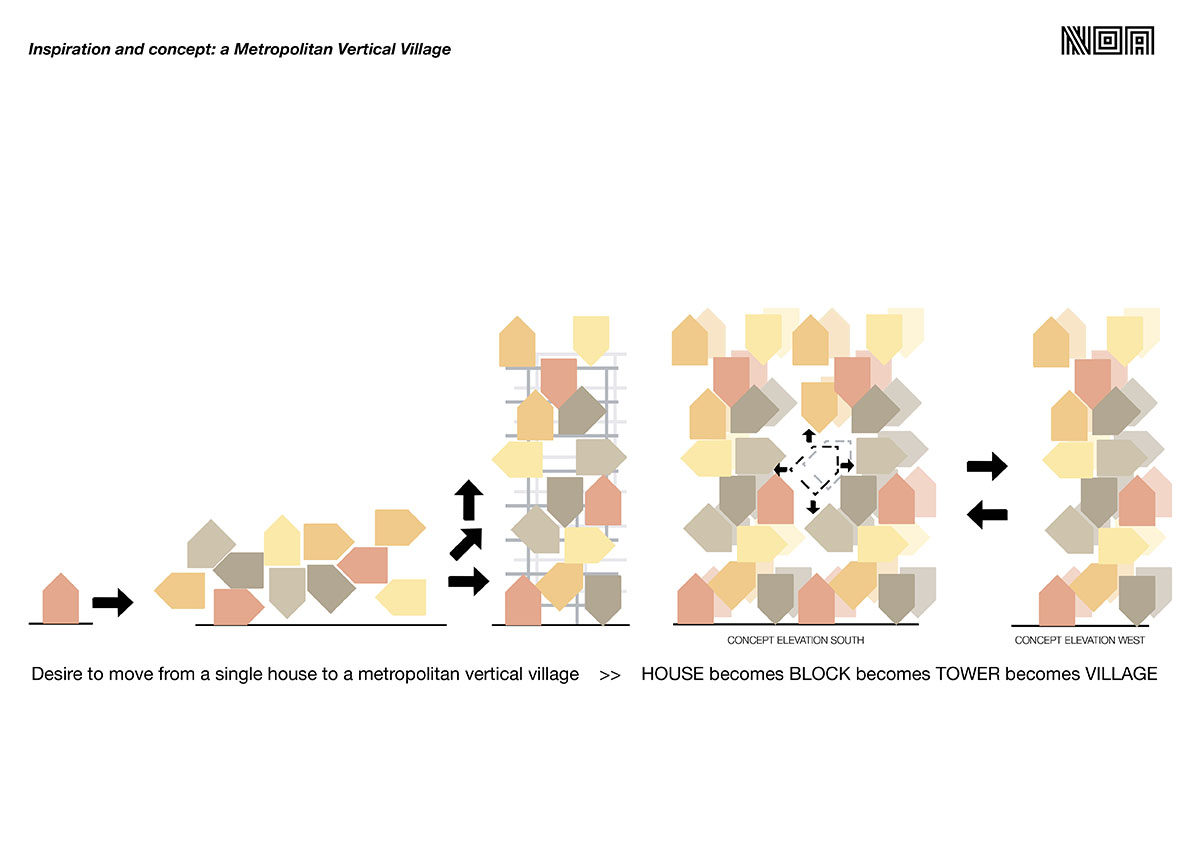
Concept diagram
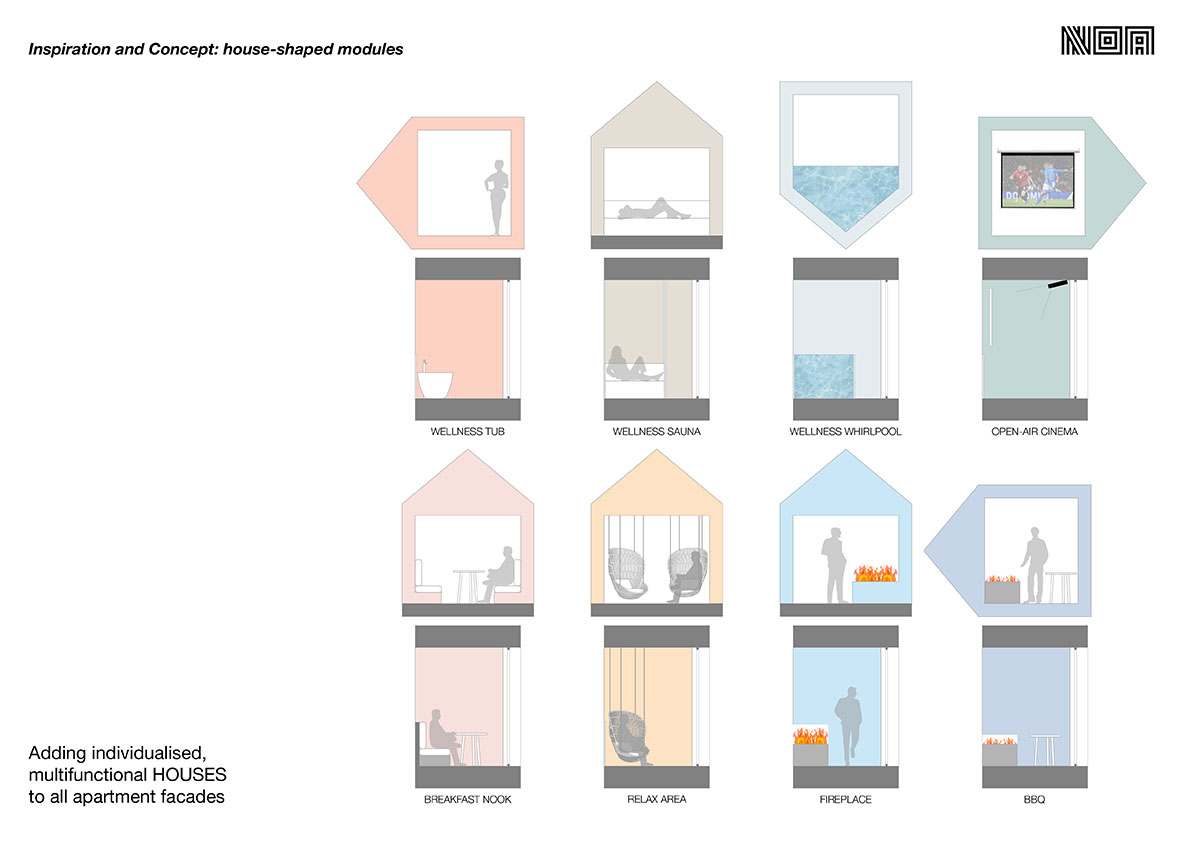
Concept
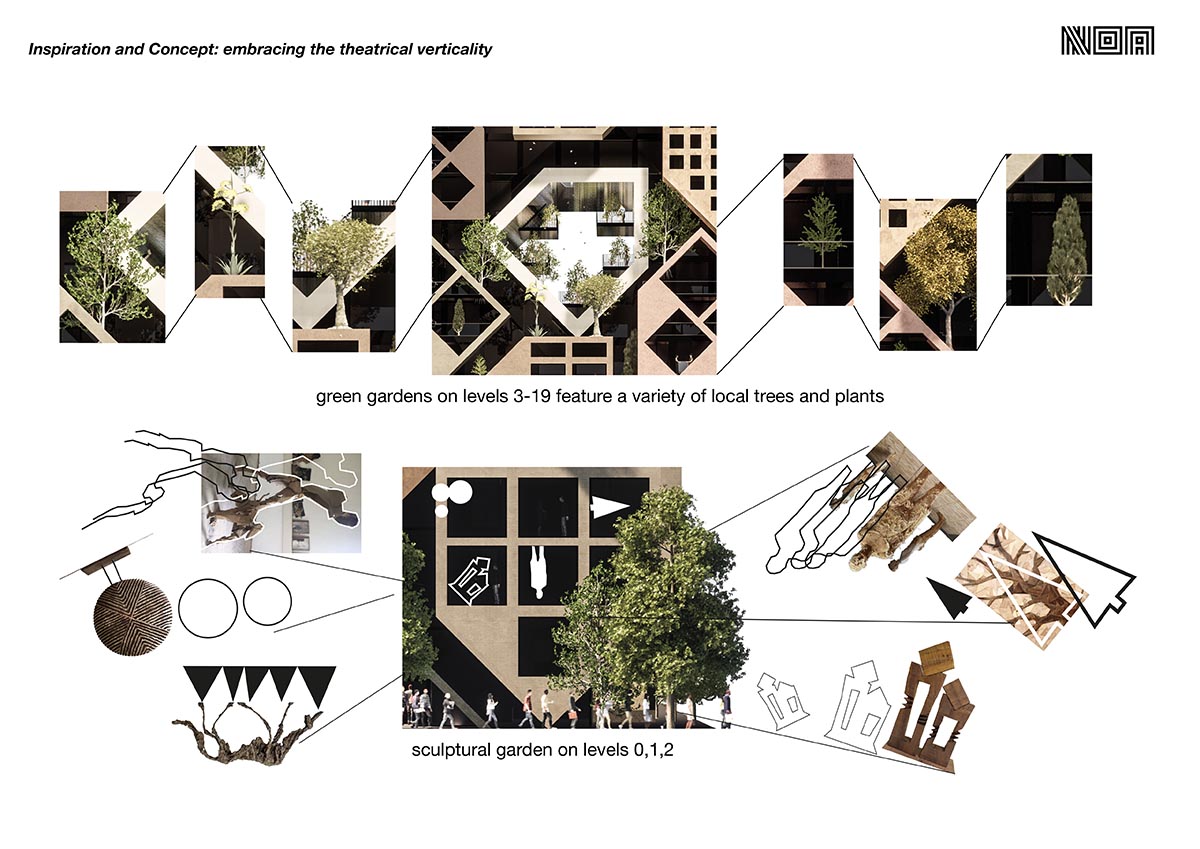
Concept
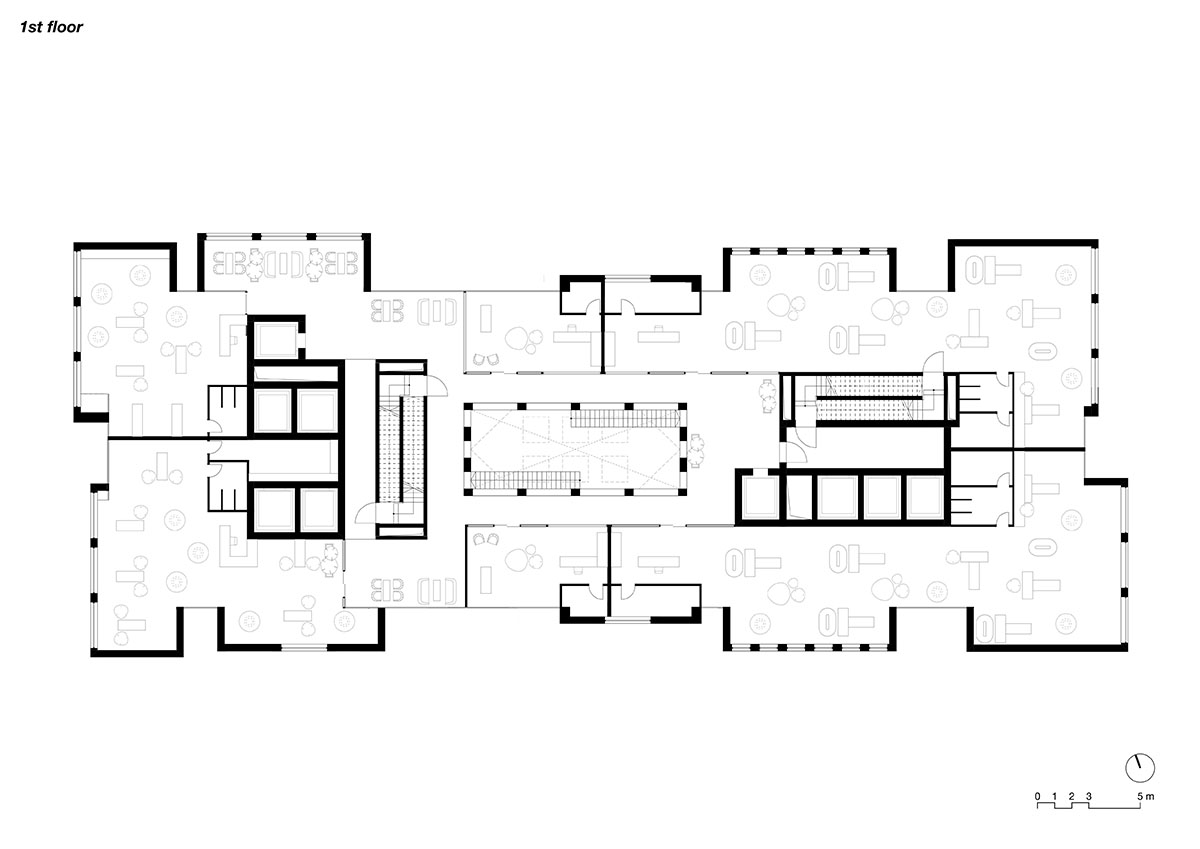
1st floor plan
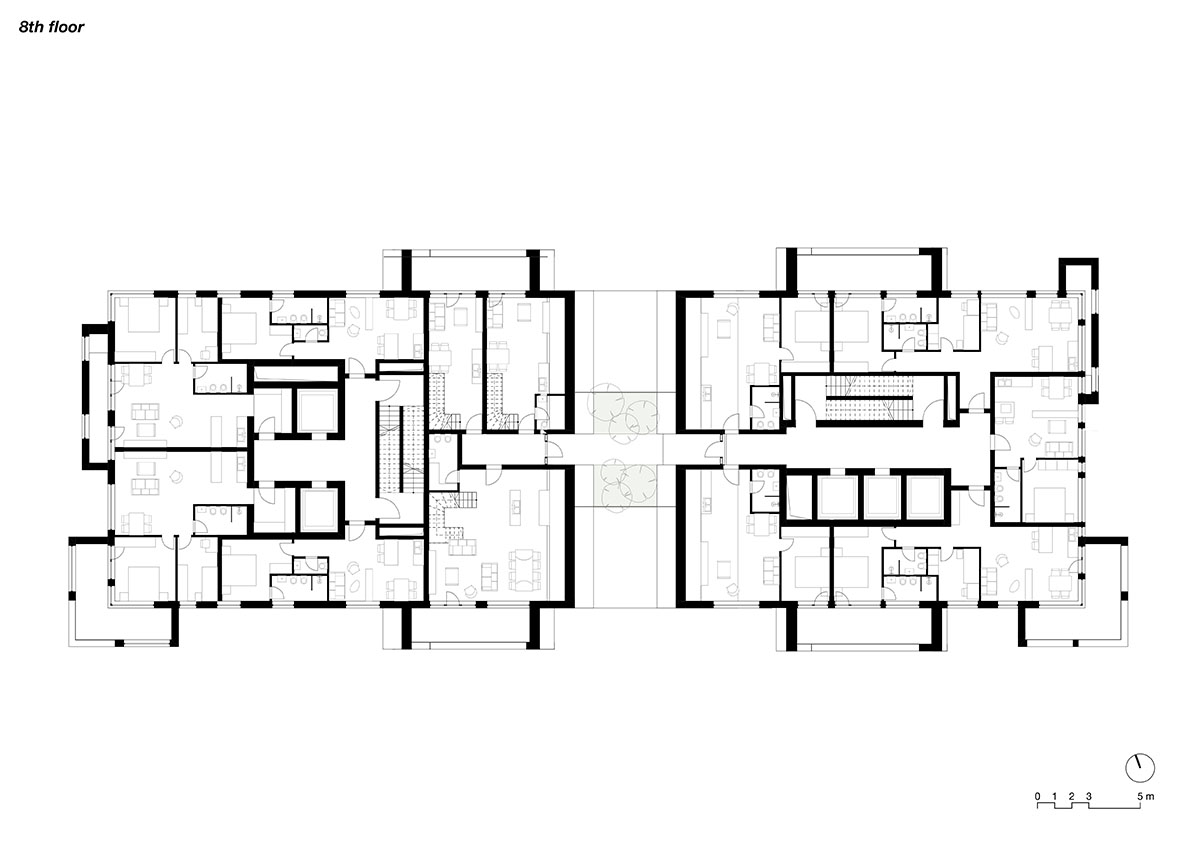
8th floor plan
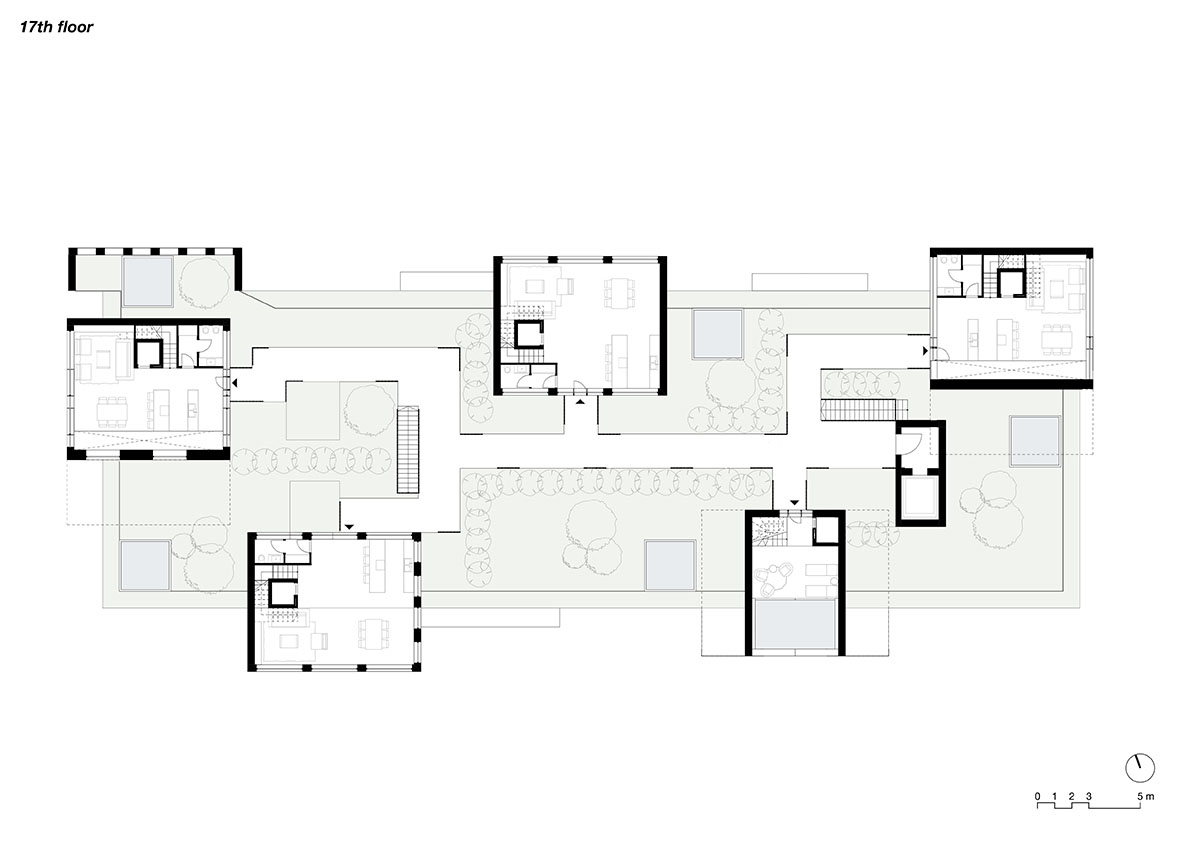
17th floor plan
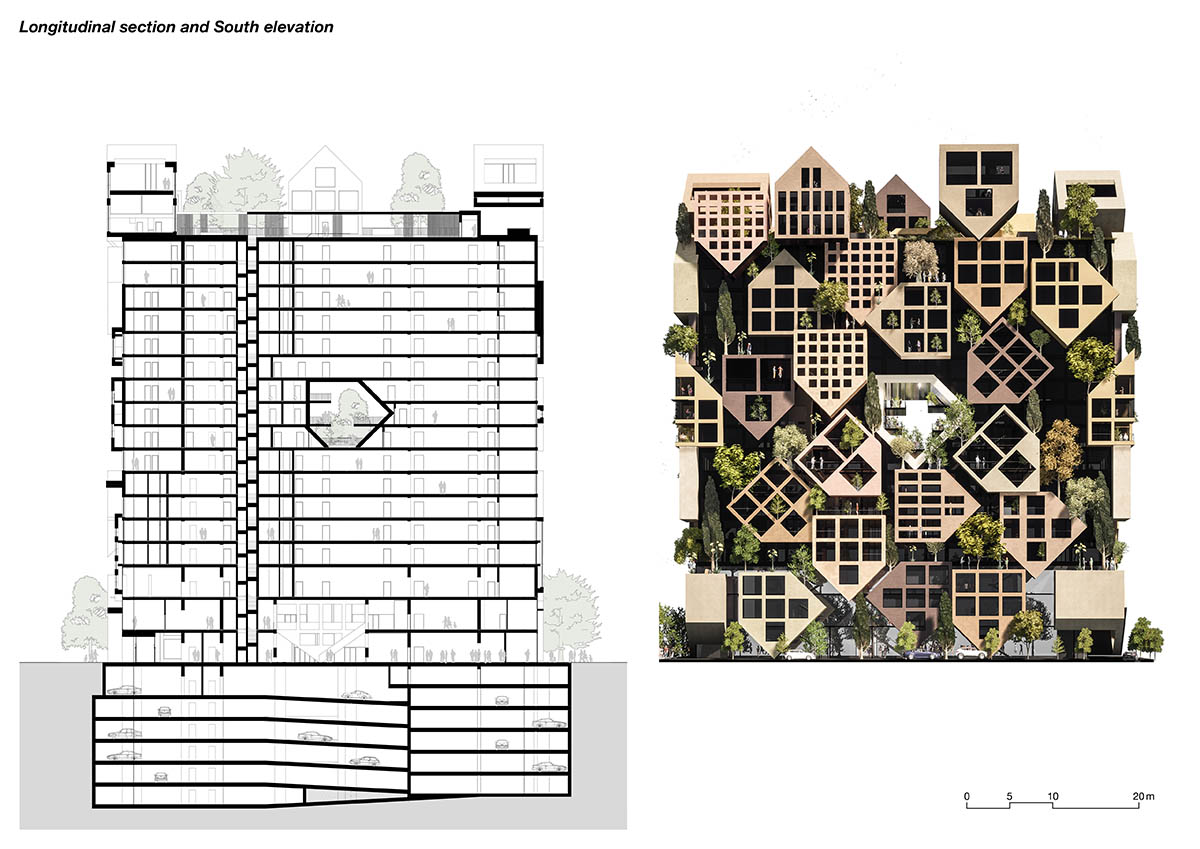
Longitudinal section
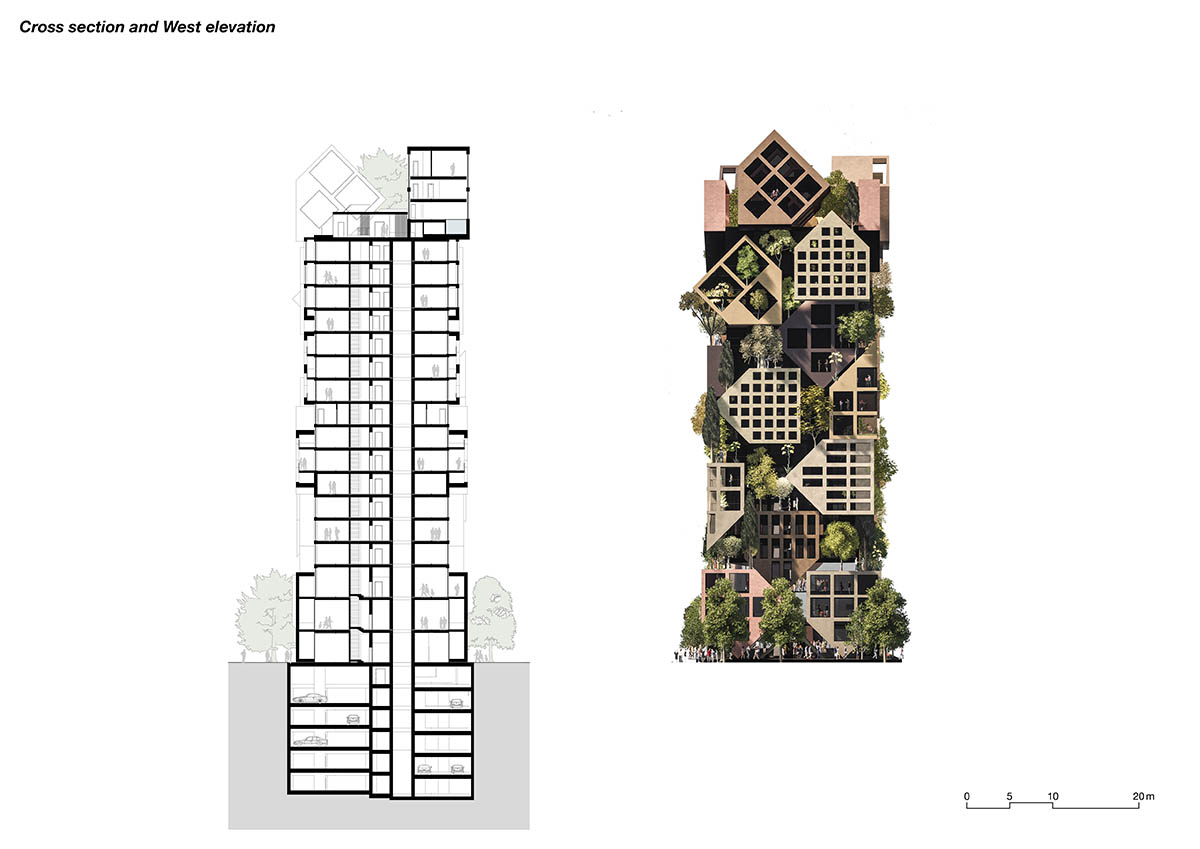
Cross section
At 58 meters above the rooftops of Tirana, the tower's three floors are devoted to five penthouses, each in a single volume and encircled by a vast, verdant garden. The project is now in the executive design phase after receiving approval for its preliminary design.
NOA designed a new hotel composed of self-contained tree suites raised on 3-metre high stilts to reduce the footprint of the building on this natural terrain in Siusi, South Tyrol, Italy. In addition, the firm renovated and extended a historic family resort in the Pustertal valley with a large wave roof that acts as a kind of hill and a kind of playground for the little guests.
Project facts
Project name: Puzzle Tirana
Architects: NOA
Co-Author: Atelier4
Location: Rruga Medar Shtylla, Tirana, Albania
Surface: 32,700m2
All renderings © Atelier4, NOA.
> via NOA
